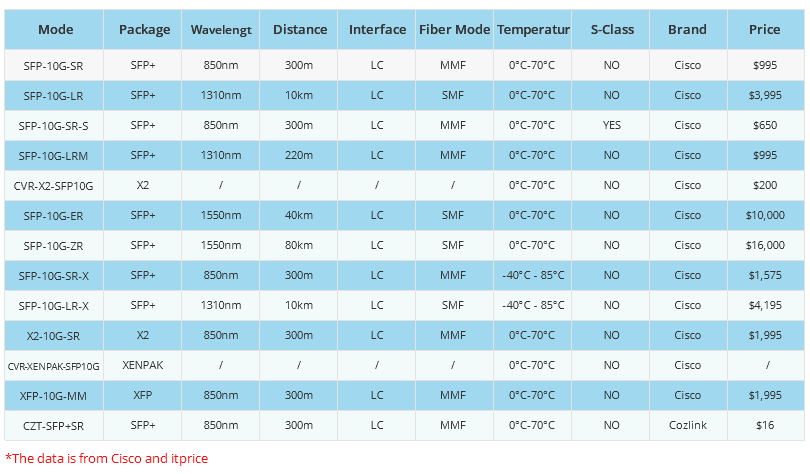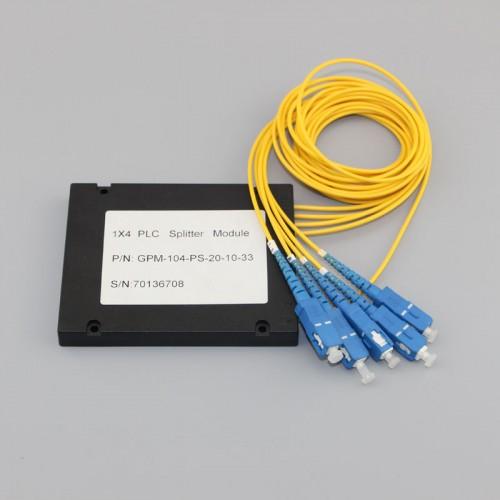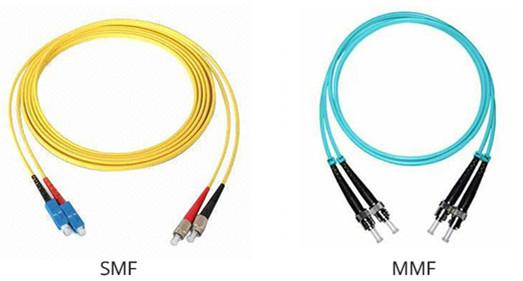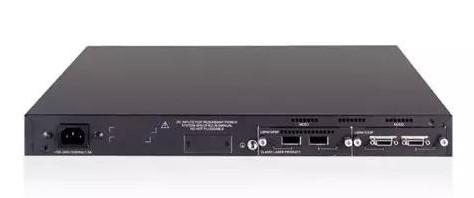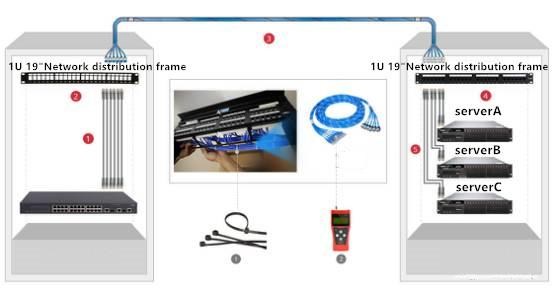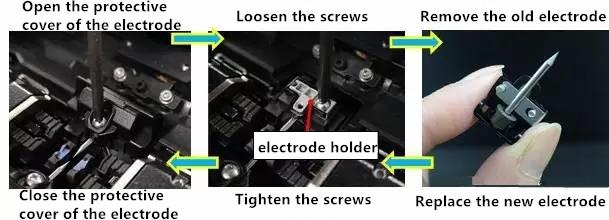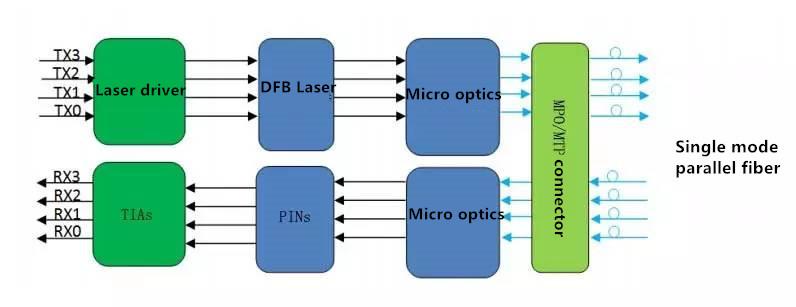- Related articles
- CISCO Catalyst 3750 Family
- Optical Transceivers for Cisco WS-C3750V2-24FS-S Switch
- Applicable to 1000BASE-SX Standard Optical Transceiver Models
- Optical Transceivers for Cisco SF200E-48P-UK Switch
- Optical Transceivers for Cisco WS-C3650-24TD-L Switch
- Optical Transceivers for Cisco SG250-26-K9-EU Switch
- What is a network adapter used for?
- All Cisco SFP-OC3-SR's information (List price, Specs, Datasheet PDF, Compatibility matrix
- Applicable to 40GBASE-PLRL4 Standard Optical Transceiver Models
- Optical Transceivers for Cisco WS-C3560V2-48TS-S Switch
Recommend tag

Difference between 1g and 10g sfp+
2023-07-31
Difference between 1g and 10g sfp+
1G/10G SFP refers to the fiber optic interface. 1/10G SFP represents a hundred-megabit fiber optic interface because G stands for gigabit. 10/100/1000 Ethernet ports are what we call electrical ports, and the numbers here represent adaptive tens of megabits, hundreds of megabits, and gigabits.

The main difference between 1G SFP+ (Small Form-factor Pluggable Plus) and 10G SFP+ is the data transfer rate they support.
1G SFP+ modules are designed to support a data transfer rate of up to 1 gigabit per second (Gbps). They are commonly used with Ethernet and Fiber Channel networks where lower bandwidth is sufficient, such as for connections between switches, routers, or servers.
On the other hand, 10G SFP+ modules are designed to support a data transfer rate of up to 10 Gbps, making them suitable for high-bandwidth applications. They are commonly used for 10 Gigabit Ethernet networks, high-performance computing, data centers, and other scenarios where higher bandwidth is required.
10/100/1000 Ethernet ports, on the other hand, provide electrical connections and are capable of supporting data transfer rates of up to 100 megabits per second (Mbps), 1 gigabit per second (Gbps), or 10 gigabits per second (10 Gbps), depending on the specific port. They are commonly used in local area networks (LANs) and are often more cost-effective for lower bandwidth applications.
In summary, the main difference between 1G and 10G SFP+ is the data transfer rate they support, with 10G SFP+ providing significantly higher bandwidth capabilities compared to 1G SFP+.
Expand knowledge:
Can 1G SFP Optics Run at 10G SFP+ Port?
SFP+ slots can take SFP modules, most do but not all. It may depend greatly on the switch models. SFP+ ports often accept SFP optics but at a reduced speed of 1Gb. And sometimes this port will lock the speed at 1Gb until you reload the switch or do some fancy set of commands. Besides, the SFP+ port usually don't support speed under 1G. That is to say, you can’t plug the 100BASE SFP in the SFP+ port.
If you are unsure about the connectivity, it is suggested that you consult the vendor to make sure the 10Gb switch port supports dual rate before plugging an SFP transceiver into the SFP+ port on your 10Gb switch.
Can 10G SFP+ Optics Run at 1G SFP Port?
Will 10Gb SFP+ run at 1Gb? The answer also depends. You need to down rate the 10G SFP+ transceiver on the switch, but practically no one will be encouraged to do that. In particular, from the economic point of view, assuming that you have one 1G switch and one 10G switch and if you connect them with two 10G fiber optic transceiver modules, what you can expect to get? 1G network connectivity!

TECHNICAL SUPPORT
Get solutions or consultation from the technical team.








































